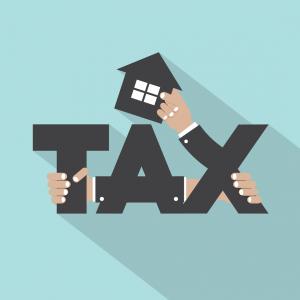
Don’t Forget Real Estate Taxes!
When you are buying a home, there are so many things to remember. Property taxes are a big one!
Local governments rely on taxes to fund various community services. Tax revenues come from several different sources, including property taxes on all homeowners in the community. (Note that some areas also assess a transaction tax on the purchase/sale of properties, although this is uncommon.)
If you’re buying a home, here’s what you need to know:
How Taxes Are Determined
Governments set a general tax rate, then apply this to the assessed value of your home. Even if you have only made one mortgage payment, your annual real estate taxes will be assessed for the full value of your property. Taxes are based on value, not how much of the property you own.
Periodically, the tax assessor will re-evaluate properties and your tax bill will reflect the new value. These adjustments usually result in increases, but if there is a reason the assessed value should have gone down, you can petition to have your taxes lowered. Improvements, additions, or a general increase in property values in your area will increase your tax bill.
Special Taxing Districts
Basic local government entities may not be the only ones with hands in your pocket! Taxes for “special taxing districts” may also be funded with property (or payroll) taxes in the area where you plan to buy. These independent, special purpose governmental units may support such services as:
- Hospitals
- Fire protection
- Cemeteries
- Transportation (highways, airports, mass transit, parking facilities, etc.)
- Water/waste (water supply, sewage, wastewater treatment, irrigation, conservation)
- Trash and solid waste disposal
- Energy (electric, natural gas, etc.)
- Recreation (libraries, parks, stadiums, etc.)
Public Education
In addition to property taxes and special taxing districts, homeowners may also be assessed taxes for local schools, as well as other direct and special assessments put in place by the government as ad valorem (means “according to the value”) taxes, as well as taxes from any local government bonds issued.
Not Paying Isn’t an Option
Property taxes are a primary source of income for local government. If you don’t pay your taxes, you will probably incur a pretty hefty penalty. If you fail to pay for an extended period of time, your home can go into foreclosure in order for the government to collect their money. Plan to pay your taxes, and pay them on time.
Paying Property Taxes with a Credit Card
Some municipalities allow property owners to pay their taxes with a credit card, but that may not be a good idea, because you might incur a two to three percent processing fee. If you are unable to pay on time, and are considering paying with a card, compare the cost of using a credit card to the penalty for paying late.
The best plan, of course, is to always pay on time. Some areas offer a discount for those who pay early!
Property Taxes Can Reduce Your Income Tax
Mortgage interest isn’t the only thing you can claim on your individual income taxes. Property taxes can also be claimed if you itemize—although the Tax Cuts and Jobs Act placed limits on both of these deductions, starting in 2018. (The new tax law also substantially raised standard deductions, which greatly reduces the number of people who will benefit from filing itemized returns.)
None of this spares you from paying property taxes. However, you may be able to enjoy a break on what you have to pay on your income. Be sure to consult with a tax advisor before claiming these deductions and keep copies of your tax bill and proof of payment in your income tax file.
You Are Personally Responsible – Even If Using Escrow
Many homebuyers include one-twelfth of their anticipated property taxes in their monthly escrow payments, so the money is there when property taxes come due. That’s a great way to save up and not face a big lump-sum bill.
However, you are still personally responsible for making sure your taxes get paid, so double check. Don’t just assume that once monthly escrow payments are set up, you don’t have to worry about your taxes. If possible, ask your lender to pay the bill early if discounts are available.
You May Qualify for a Tax Discount
Some areas have homesteader exemptions (or reductions) in property tax. This is usually, but not always, based on age. In some areas, Veterans receive exemptions. Other areas offer discounts or exemptions for other reasons.
Contact your local Property Valuation Assessor (PVA) office or tax assessor to determine if you qualify for any savings. Ask about the dates for early payment and what discounts you can secure by paying taxes early.
What to Know Before You Buy
Since taxes can be a substantial expense for your household, you should determine the estimated taxes for an area where you are considering buying a house before you start shopping for homes.
Before making an offer on a particular house, check the current taxes noted in the property listing and talk to your buyer’s rep about taxes for the area.
You might also want to visit the local tax valuation office and ask for any additional information about the property and future increases: How often are properties reassessed? What is the usual tax increase (on average)? Are any special projects in the works that could trigger a tax hike?
It’s always better to be informed, so you know the real cost of the home you plan to buy.
